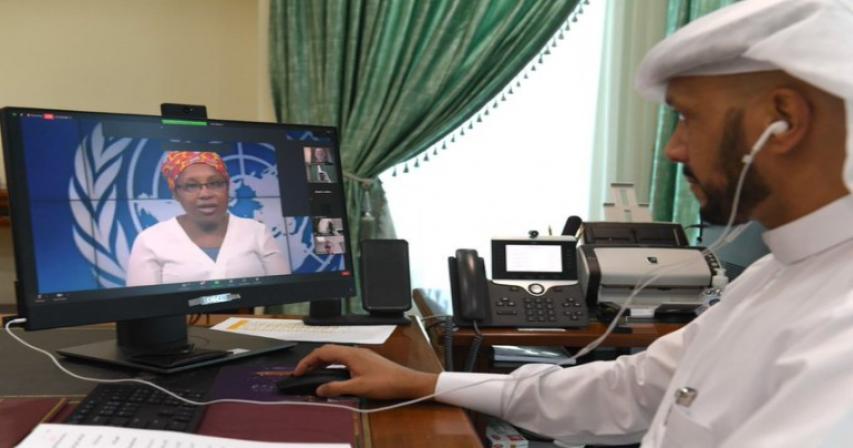The State of Qatar participated in the MENA regional forum held virtually to discuss preventing conflicts and protecting the human rights of minorities. The forum took place June 15-16.
The State of Qatar's delegation to the forum was chaired by HE Director of Department of Human Rights at the Ministry of Foreign Affairs, Dr. Turki bin Abdullah Al Mahmoud.
His Excellency discussed, during his speech in the forum, the State of Qatar's vision in enhancing dialogue between civilizations, given its a valuable tool in building bridges of communication between peoples in a way that helps enhance stability, especially given the challenges the world is seeing to global peace amidst the growing racism and extremism.
His Excellency stressed the State of Qatar's commitment to scientists and intellectuals. His Excellency also highlighted the country's commitment to education and employment, which helps youth reach their potential and develop their societies.
He touched on the strategy of the State of Qatar at the international level and its efforts to protect the rights of minorities in areas of war and conflict through education and humanitarian aid, stressing that the State of Qatar believes that wars and conflicts are the result of the lack of stability and lack of development.
He highlighted the efforts of the State of Qatar in providing unconditional development aid to developing countries to enable them to implement their development programs, combat poverty and unemployment, develop science and improve health care, believing that investment in people is the first means of defense to combat wars, conflicts, fanaticism and extremist thought. He pointed out that the State of Qatar has been developing a number of development programs under the umbrella of Qatar Foundation.
HE Director of Department of Human Rights at the Ministry of Foreign Affairs reviewed a set of proposals made by the State of Qatar to protect the rights of minorities in war zones and conflicts and reduce the impact of wars and conflicts, most notably the need to enhance the capabilities of the conflicting parties in the field of human rights protection and cooperation with international, regional and local organizations to monitor the situation of civilians and coordinate efforts to ensure their protection and enhance the necessary legal accountability and the importance of peace talks in general. Other proposals included comprehensive strategies for building peace at the national level and ensuring the protection of civilians, especially children, displaced persons and minorities, including from violence in all its forms and accountability for the perpetrators of such violence, improving governance and the rule of law, in addition to transitional justice as an essential element in the peace process and anti-corruption.
His Excellency discussed the State of Qatar's mediation efforts on the regional and international fronts, in addition to the country's efforts in bolstering stability and ensuring national unity is maintained. He also reviewed a number of successful Qatari mediation experiences that helped contain conflicts at the regional and international levels.
He also touched on the experience of the State of Qatar in establishing the Doha International Center for Interfaith Dialogue, which seeks to spread the culture of dialogue and promote a culture of acceptance of others and peaceful coexistence among followers of religions, pointing to the State of Qatar's annual hosting of the Doha International Conference for Interfaith Dialogue, in which different scholars participate from different parts of the world.
His Excellency indicated that the Global Peace Index for 2020 issued by the Institute for Economics and Peace ranked Qatar top in the Arab world and 27 globally out of 163 countries. (QNA)

Comments